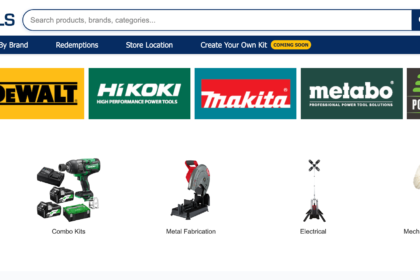A potential customer gets turned down for a loan because of a decision made by an AI system. Or a hiring algorithm passes over qualified candidates because of unseen bias in the data. In both cases, the company is left wondering how the AI system came to those conclusions—and how to fix it.
This is where AI auditing services come in. Think of it as a “check-up” for your AI systems. Just like you wouldn’t run a business without regular reviews of your processes, AI audits make sure your algorithms are working fairly, transparently, and in line with regulations. They help uncover hidden biases, improve system performance, and ensure your AI is not just smart but responsible.
But why exactly is transparency and accountability so important when it comes to AI? Let’s dive into why businesses need to prioritize these factors in their AI systems.
How AI Auditing Services Help Businesses Achieve Transparency and Accountability
AI systems can be prone to hidden biases, especially if the data used to train them is flawed. AI auditing services are essential for businesses that rely on AI to make critical decisions, as they help ensure these systems are operating ethically, fairly, and in compliance with regulations. With a robust AI auditing framework, businesses can systematically assess the fairness and accuracy of their algorithms.
Here’s how AI audits help businesses maintain transparency and accountability:
Identify and Address Biases:
AI models are often trained on historical data, which can carry hidden biases. For example, a hiring algorithm trained on past hiring data might favor candidates from a certain demographic, unintentionally discriminating against others. AI audits examine data and algorithms to detect these biases, ensuring that decisions are made equitably and without discrimination.
Example: A company uses an AI hiring tool but finds through an audit that the model consistently favors male candidates for engineering roles. After the audit, they retrain the model on more balanced data to eliminate this bias.
Ensure Legal Compliance:
AI audits help businesses stay in line with regulations such as GDPR, the AI Act, and other legal standards. These audits ensure that data is being used ethically and that AI systems meet compliance requirements, especially when personal data is involved.
Example: A financial institution uses AI to assess loan applications but hasn’t updated its models to meet new GDPR guidelines. An AI audit helps identify compliance gaps and provides recommendations to ensure that the system meets all data privacy regulations.
Verify Ethical Decision-Making:
AI models can make impactful decisions, such as approving loans or determining insurance premiums. It’s critical to ensure that these decisions are made fairly and ethically. AI audits review how decisions are made, checking that the algorithms are not based on biased or unethical criteria.
Example: An insurance company uses an AI model to set premiums but finds, through an audit, that the model unfairly charges higher premiums to individuals in certain zip codes. The audit recommends adjusting the model to eliminate these ethical concerns.
Build Customer Trust:
Transparency is key to building trust with customers. AI audits provide businesses with clear, verifiable reports that show how decisions are being made and that the system is functioning responsibly. This helps customers feel confident that their data is being used ethically.
Example: A tech company uses AI to recommend products to users. By undergoing regular AI audits and sharing audit results publicly, they demonstrate transparency, reassuring customers that their recommendations are unbiased and based on accurate data.
Continuous Improvement:
AI systems are dynamic and require regular monitoring to remain effective. Audits help businesses identify areas where their AI systems may be underperforming and suggest improvements to keep the system aligned with evolving business goals.
Example: A retail business uses AI to optimize inventory management. An audit reveals that the system isn’t predicting demand accurately for certain products. The business then uses the insights from the audit to improve the AI model’s forecasting ability.
Spot and Fix Performance Issues:
AI models can degrade over time or may not perform as expected. Audits help identify inefficiencies or performance gaps in AI systems, providing actionable insights to improve accuracy and reliability.
Example: A healthcare provider uses AI for patient diagnostics. After an audit, they discover that the AI system is missing early signs of a certain condition. The audit recommends adjustments to the model, improving its diagnostic accuracy.
Book Your AI Audit Now and start transforming your AI into a powerful, transparent, and accountable asset—before it costs you!
Now that you know why AI audits are crucial for your business, it’s time to choose the right partner. Finding the right AI audit service company ensures your systems remain transparent, compliant, and efficient.
How to Choose the Right AI Audit Service Company for Your Business
Finding the right AI audit service company can make all the difference when it comes to ensuring your AI systems are ethical, compliant, and performing at their best. With so many options available, how do you choose the right partner? Here’s a guide to help you make an informed decision:
Look for Expertise and Specialization
AI auditing is a specialized field that requires deep technical knowledge and experience. Make sure the company you choose has a proven track record in AI and data science, with experience in your specific industry.
Tip: Check for case studies, client testimonials, or industry recognition to ensure they have the technical depth and industry-specific knowledge you need.
Ensure a Comprehensive Audit Approach
A thorough AI audit should cover multiple facets: data integrity, algorithm performance, ethical standards, regulatory compliance, and bias detection. Ensure the company offers a holistic audit that looks at the entire AI lifecycle, not just individual components.
Tip: Ask about their audit methodology. Do they assess the entire system, from data collection to decision-making, or just the output?
Check for Proven Success in Compliance and Ethics
As AI becomes more regulated, compliance with standards like GDPR and the AI Act is critical. Choose a company that understands the legal and ethical implications of AI in your industry and can ensure your systems are fully compliant.
Tip: Look for companies with experience in handling regulatory audits and ethical oversight, particularly those familiar with global standards and local regulations.
Consider the Scope of Reporting and Transparency
A good audit should provide clear, actionable insights—not just a report of issues. Look for a company that offers transparent, detailed reports that help you understand the findings and make data-driven decisions.
Tip: Ask for sample reports or presentations. How clear are the findings? Do they offer actionable recommendations that you can implement?
Ensure Long-Term Partnership Potential
AI systems evolve over time, and so should your audits. Choose a company that’s committed to an ongoing partnership, offering regular check-ins, updates, and continuous improvement. A long-term relationship ensures that your AI systems stay compliant and efficient as new challenges emerge.
Tip: Ask about their post-audit support. Will they assist with implementation and follow-up audits to ensure continued performance?
Evaluate Customization and Flexibility
Every business is unique, and so are its AI systems. Choose an AI audit service provider that can tailor their approach to fit your business needs and AI infrastructure. Whether you have custom-built models or off-the-shelf AI solutions, the audit should be adaptable.
Tip: Ask how flexible their AI auditing services are. Can they accommodate unique AI models or particular compliance challenges specific to your business?
Assess Cost vs. Value
While cost is always a factor, value should be the ultimate deciding factor. Look for a company that offers a balanced approach—ensuring a thorough, high-quality audit without overcharging. Remember, an AI audit is an investment in the reliability, fairness, and performance of your AI systems, which ultimately saves your business time, money, and reputation.
Tip: Get quotes from multiple companies but focus on the expertise and depth of service they provide. The cheapest option may not always be the best choice for your business.
Take Your AI Systems to the Next Level with Codewave
If you’re wondering how to apply this approach to your AI systems, consider seeking out experts who bring both technical expertise and a commitment to long-term, sustainable AI solutions. In industries ranging from healthcare to finance, AI audits have been game-changers, ensuring models run effectively while meeting compliance standards and evolving market needs.
One such expert in this space is Codewave, a team renowned for their tailored AI audits that not only highlight risks but also guide businesses towards long-term AI optimization. Through their comprehensive audits, businesses can gain:
- AI Readiness Assessment: Understand your organization’s preparedness for AI integration and identify the steps needed to adopt AI seamlessly.
- Cost Savings with Generative AI: Discover areas where Generative AI can optimize processes, reduce inefficiencies, and save costs across the board.
- Automation Strategies for Maximum Profit: Unlock automation opportunities to streamline operations, increase efficiency, and drive profitability.
- Data & AI Strategy Insights: Receive actionable recommendations on building a robust Data & AI strategy to create a sustainable competitive edge and technology moat.
These insights can be part of a personalized AI audit report that ensures your AI systems are both high-performing and aligned with your business goals.
Fix Your AI Now – Get Your Personalized Audit!








